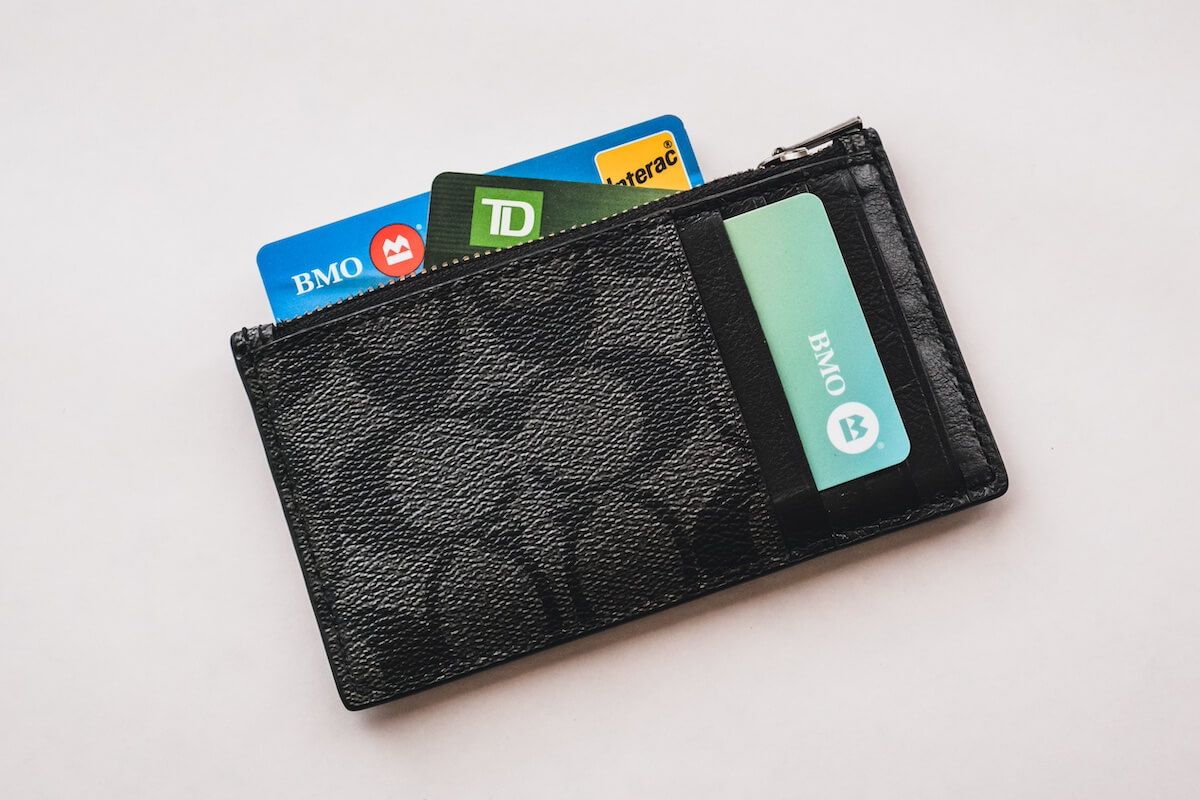Advertiser Disclosure
Last update: January 9, 2024
9 minutes read
What is a Balance Transfer? Your Guide to Smart Debt Management
Learn about balance transfers to slash debt and boost savings. Discover how to consolidate debt, save money on interest, and take control of your finances today!

By Brian Flaherty, B.A. Economics
Edited by Rachel Lauren, B.A. in Business and Political Economy
Learn more about our editorial standards


Ever felt like you're sinking in quicksand with those high-interest credit card debts? Imagine a lifeline, a way to pull yourself out without the added weight of massive interest. But wait, is there such a magic trick in the finance world? The answer is a solid "yes!" Enter the balance transfer.
What is a balance transfer? A balance transfer is a smart financial move where you shift debt from one account to another, typically to a card offering a lower or even 0% promotional interest rate for a certain amount of time. This strategy can save you a ton of cash in interest, giving you a clearer path to being debt-free and responsibly managing your credit cards.

Key takeaways
- Balance transfers allow you to move debt from one card to another with a potentially lower interest rate
- They can provide big savings, especially if you use a 0% APR introductory offer
- It's essential to be aware of balance transfer fees and the potential for a temporary dip in your credit score
Why consider a balance transfer?
You know that sinking feeling when you see your credit card bill? A balance transfer is like the next season's premiere, giving you a fresh start. Let's break down the ins and outs of this financial move.
What's the big hype?
A balance transfer isn't just financial jargon; it's a legit game-changer. When you move your outstanding debts from one card to another, particularly one that's offering a sweet 0% introductory APR, you're basically setting yourself up to save a bucket load on interest charges. Here's the deal:
- Potential to save on interest: If you're wrestling with a balance on a card that's got a whopping interest, transferring it to a card with a 0% APR can be a solid choice. It's like pausing the interest meter while you tackle the principal debt.
- Consolidation of debts: Remember when Thanos wanted all the infinity stones in one gauntlet? It's like that but for your debts. Consolidating makes tracking and paying way simpler. No more juggling multiple cards!
So, what's the catch?
Like all things in life, there's no free lunch. While balance transfers sound like a dream, they come with their own set of strings attached.
- Balance transfer fees: You'll typically have to shell out 3% to 5% of the total transferred. It's like buying an entrance ticket to a potentially interest-free zone.
- Potential for a lower credit limit: Sometimes, the card you're transferring to might have a lower credit limit. As a result, you might not be able to shift the entire balance.
Also, If you're not disciplined and continue spending, you might end up in a worse spot than when you started. The promotional rate often lasts anywhere from 6-18 months, so if you don’t pay off the debt by then, your interest rate shoots back up. The golden rule? Avoid using the old card after the transfer. You don't want to double-dip into debt - that’s a no-go zone!
Balance transfers are a great option if you feel you can pay off the debt within the promo period. It is possible to do another balance transfer later, but this will come with additional fees.
How do I go about doing a balance transfer?
Alright, so you're convinced this is the way to go. But how do you actually go about it? You'll be relieved to know it's not some arcane ritual. Here's a quick rundown:
- Apply for a card with a juicy 0% APR offer on balance transfers: However, keep in mind you'll usually need a good or excellent credit score (670 or above). No shortcuts here.
- Initiate the transfer: You'll need some details about your existing debt – issuer name, amount, and account info.
- Play the waiting game: Once approved, your new issuer will deal with the old account directly. Your old balance, plus any transfer fees, will strut into your new account.
- Time to pay down that debt: With the balance now on the new card, you'll start your monthly payments. And if you're smart about it, you'll annihilate that debt during the 0% APR period, saving you a ton!
TuitionHero tip: You're not just limited to credit card debt. Some issuers are flexible and let you shift other debts, like auto loans or personal loans, onto a credit card.
Thinking of executing a balance transfer? Here's a quick table of do’s and don'ts to guide your journey:
Dos
Do read the fine print
Do plan your repayment strategy
Do check the post-promo rates
Don'ts
Don't forget about transfer fees
Don't miss any payments
Don't rack up new debt
Table: Quick guidelines for balance transfers.
What happens to my credit score?
So, you're thinking, "I'm all in for saving some bucks, but what's this going to do to my precious credit score?" It's a valid question. After all, credit scores are like the GPA of adulthood, and you definitely want to stay on the Dean's list.
Initial dips and potential rises
When you opt for a balance transfer, there's an initial "hard inquiry" into your credit. Think of it as a temporary ding, but don't freak out! This dip is usually short-lived.
- Short-term impact: This "hard inquiry" might cause your score to drop a bit. It's like stubbing your toe – it hurts initially but gets better.
- Long-term benefits: If you play your cards right (pun totally intended), and you're consistent with your payments, over time, your credit score will likely rise. By reducing your debt-to-income ratio, you're essentially showing the credit world you're responsible.
- Be careful: If you’re transferring installment debt (like an auto loan or a personal loan) to a balance transfer card, you’re increasing your revolving credit line and potentially your credit utilization, which can hurt your score.
Making the most of your balance transfer
Alright, we've covered the basics, the perks, and the pitfalls. But how can you ensure you're squeezing every ounce of benefit from your balance transfer? Let's do a deep dive.
1. Time it right
If there's one thing to remember, it's that timing is everything. Most cards offer a 0% APR for a limited period, typically 6 to 18 months. You want to make sure you've got a plan to pay down as much of your debt during this golden period.1
2. Know your limit
While it's tempting to transfer all your debts, sometimes it's not feasible. Your new card might have a lower credit limit, so be strategic. Prioritize transferring the debt with the highest interest rate first.
3. Watch out for fees
Sure, you're avoiding interest, but don't forget the balance transfer fees. Always factor these in when calculating your potential savings.
Advantages and disadvantages of balance transfers
When it comes to balance transfers, it's not all rainbows and butterflies. Like every financial strategy, it comes with its own set of pros and cons. Understanding these can help you make an informed decision.
Pros of balance transfers
- Potential savings: Transferring to a card with a lower interest rate can save you a significant amount on interest charges.
- Simplified payments: By consolidating multiple card debts into one, you reduce the hassle of managing multiple payments.
- Breathing room: The 0% introductory APR gives you a window to tackle your principal debt without the added pressure of accruing interest.
- Credit score boost: Over time, if managed well, it can positively impact your credit score by reducing your credit utilization rate.
Cons of balance transfers
- Initial credit score dip: The act of applying can result in a temporary drop in your credit score due to the hard inquiry.
- Balance transfer fees: Most transfers aren't free. The fees can sometimes offset the benefits, especially if the amount you are transferring is small.
- Temptation to spend: With a zero or reduced interest rate, there might be a temptation to spend more.
- Post-promotional interest rates: Once the introductory period ends, the card's standard interest rate can sometimes be higher than your original rate.
How TuitionHero can help
Hey, speaking of financial wizardry, let's chat about TuitionHero for a second. Getting a solid grip on your finances isn't just about handling credit card debt.
We at TuitionHero are here to lighten that load - think of us as your financial sidekick. We specialize in Private Student Loans to help you cover those college costs without breaking the bank. Considering refinancing your student loans? We've got you covered with Student Loan Refinancing options that can help you save in the long run.
And hey, who doesn't love free money? And tying back to our main topic - if you're exploring Credit Card Offers post-balance transfer or for any other purpose, we've got some solid choices lined up for you.
Bottom line? Whether it's managing card debts, student loans, or just making college life a tad easier financially, we're here, cheering you on and offering a helping hand.
Final thoughts
Remember, while a balance transfer can be your ticket to financial freedom, it's essential to be informed and strategic. So, before you take the leap, weigh the pros and cons, and always, always read the fine print. If you're ever in doubt, TuitionHero.org has your back. We specialize in all things finance, especially student loans, and we're here to guide you every step of the way.
Author

Brian Flaherty
Brian is a graduate of the University of Virginia where he earned a B.A. in Economics. After graduation, Brian spent four years working working at a wealth management firm advising high-net-worth investors and institutions. During his time there, he passed the rigorous Series 65 exam and rose to a high-level strategy position.
Editor

Rachel Lauren
Rachel Lauren is the co-founder and COO of Debbie, a tech startup that offers an app to help people pay off their credit card debt for good through rewards and behavioral psychology. She was previously a venture capital investor at BDMI, as well as an equity research analyst at Credit Suisse.
At TuitionHero, we're not just passionate about our work - we take immense pride in it. Our dedicated team of writers diligently follows strict editorial standards, ensuring that every piece of content we publish is accurate, current, and highly valuable. We don't just strive for quality; we aim for excellence.